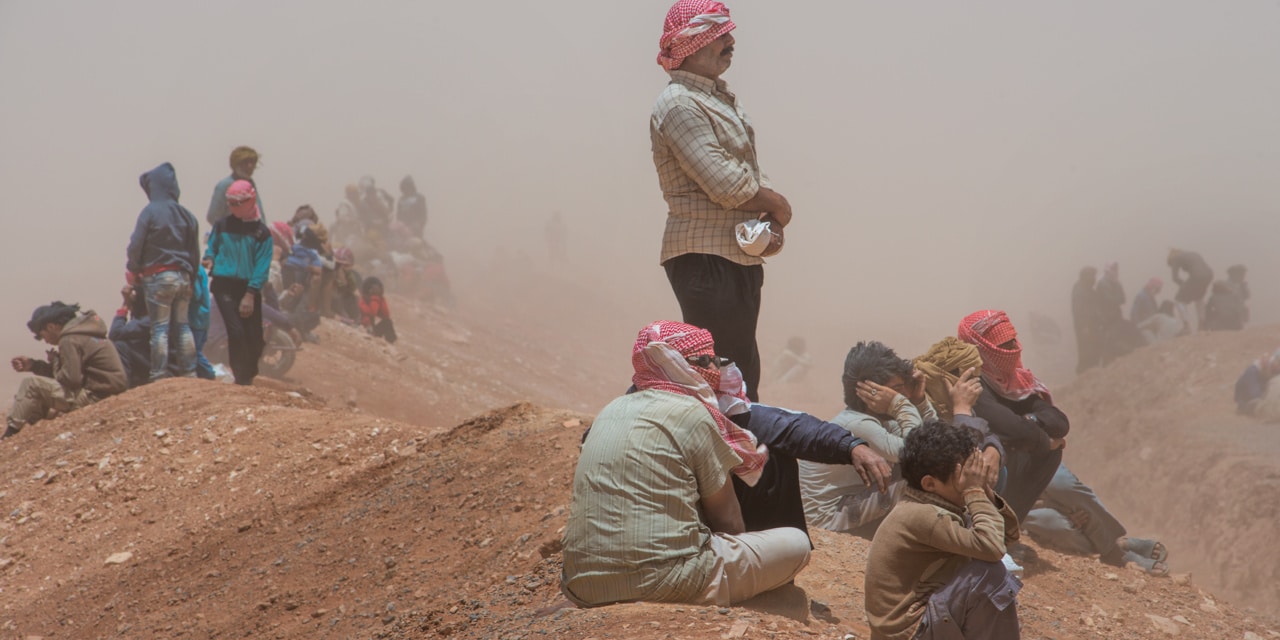Syria Direct reports on the dilemma for pregnant women in one of Syria’s largest camps for displaced people: give birth in threatened and under-supplied medical facilities or risk reprisals if they return to regime areas.
Since 2015, about 50,000 civilians have been in the Rukban camp, in the barren desert in southeast Syria near the Jordanian border. In recent weeks, there have been reported attempts to close medical facilities and cut supplies to those that remain.
Bishayr, 19, fled from Homs Province after the Islamic State took over nearby areas. In her third trimester of pregnancy, she says:
This is my first child. A woman’s first birth is difficult, and I’m scared that something bad might happen. There are no doctors here.
Access to the UN medical point resumed on September 22, but clinics are still desperately low on supplies and medicine is prohibitively expensive when available, according to medical staff and humanitarian workers. Nurses said at least seven pregnant women are in dire need of Caesarean sections.
Before the Syrian uprising in 2011, the maternal mortality rate was 49 deaths per 100,000 live births, comparable to that in Iraq and Malaysia. By 2015, it had risen to 68 deaths per 100,000 births, and that number might not include besieged opposition areas where medical services were devastated by Russian-regime bombing and ground attacks.
The UN’s Population Fund estimated in April that about 500,000 pregnant girls and women in Syria are in need of “immediate assistance”. About 1.5 million Syrian women and girls live in areas with “limited aid available”.
Bishayr tells Syria Direct: “Yes, my [pregnancy] is going normally. But I’m very scared. Pregnancy in this camp is very difficult, and that fear accompanies women…until the birth is over.”
Nurse Ruba al-Homsi explains, “Every day we’re losing a patient’s life due to a lack of aid.”
But pregnant women speak of the risk if they leave Rukban. Maha, also in her third trimester and in need of a C-section, says, “I’m scared of getting arrested. What will happen to me?”
Bishayr echoes the fear. Her husband, whom she married after arriving in Rukban, is a former rebel.
She concludes, “People are afraid of arrest, but those who must go, must go.”

